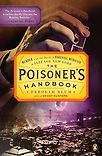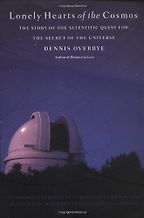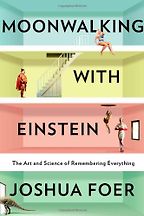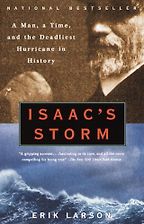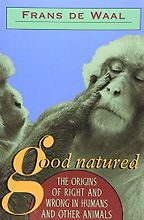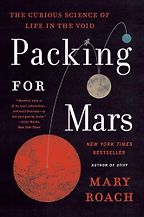Before we start with the books, I was wondering what made you go for the theme of science in society?
I like books and stories that link science with the rest of the world. Far too many people think of scientific research as existing on a separate abstract plane, when in fact it’s an entirely human enterprise – people seeking to understand the world around us – with all the quirks, foibles, personalities and flashes of generosity, decency and occasional brilliance that occur in any such enterprise.
So I tend to go for books that revolve around people – either scientists or people affected by science. This also fits into another interest of mine – the intersection of science and society, the way those two forces pull and tug at each other. I also like the subversive nature of such storytelling, the prospect of telling a really good story that will, along the way, illuminate an aspect of science. I like books that reach out to a broad audience, not just the already science-literate among us.
Well let’s take a look at five of your favourites. The first one is Lonely Hearts of the Cosmos by Dennis Overbye, which is very much looking at the people behind the science. Can you tell me about some of them?
One of my favourite people in that book is actually Edwin Hubble. He is one of the most famous of the early cosmologists. He developed the Hubble Constant, which is a rather brilliant way of measuring the distance to faraway stars and galaxies. One of the things that struck me when I read this book was that, although it wasn’t just the first time that I had thought of Edwin Hubble as a human being, it showed what a really complicated human being he was. He saw himself as a man on a mission, a famous scientist who yet needed to uphold an image of being a really good guy.
Dennis Overbye does a wonderful job of showing just how incredibly driven a lot of these scientists were to achieve scientific goals. And at the same time the book explores the impact of those goals on people around them.
What kind of effect do you think Hubble thought he was having on other people?
There is a great image in that book of how people would come to visit Hubble as he sat behind his desk and the guests would see Hubble working away really hard. And he would say to them, “I am so glad you are here, and I am giving you my uninterrupted attention”. And then he would sweep the papers off his desk on to the floor as a demonstration of that. When they had left he would be rushing around picking papers back up again! That image really stuck with me and is something Overbye explores throughout the book – the duality of the public presentation and the actual working scientist. He allows you to see that in a way that a lot of books don’t.
But there is this image of lots of scientists locking themselves away in labs and creating this aura of being removed from society. So it is interesting that Hubble wanted to let the public in. Do you think there is a distinction between different scientists?
Yes I do. I have spent my whole career trying to communicate science to others and I often say to people that science journalism really evolved in a vacuum. And that was the vacuum left by scientists themselves when the majority of them decided that they were above the common fray and that they didn’t need to share what they did with the general public. Instead they were going to share everything on this exalted plane.
I think that science journalists became one of the main connections between scientists and the public – although in the evolving Internet age more scientists can communicate directly with the public. But the lack of engagement by scientists means that science writers like myself have gained an enormous amount of power because we were the ones telling the rest of the world what was important, how people should think about science and who matters in science.
Do you think some of the scientists are catching up now?
The smart ones are. I actually wrote a piece on my blog called, “The trouble with scientists”, which is all about this tension. I used the example of my father, a very mainstream scientist, who was absolutely horrified by my career choice. But he has come to accept the role of science journalists. And now I think you see a new generation of scientists who recognise that it is an artificial boundary. Science is not research conducted on another planet by aliens. It is done by human beings and everything about it is an attempt to understand the world around us. It defines so much of who we are, and that is why it is so important for it to be communicated properly to society.
Very true. Your next choice is Moonwalking with Einstein by Joshua Foer, which is all about the author’s experience in the US Memory Championship.
The previous book we talked about was really about scientists and how they do their work. This book focuses not so much on the scientists but more on the consequence and meaning of memory for the rest of us. Within the framework of a memory championship, Foer looks at this almost obsessive interest in learning, how to remember everything. He asks the really interesting philosophical question, which is, are we defined by what we remember?
Memory is such a powerful aspect of any person. When people start to lose their memory it makes them very vulnerable.
Yes. In fact, my scientist father now has memory issues. I was talking to him a few weeks ago about this event earlier in my life, which he had helped rescue me from. It was always one of those points in time that I considered to be really important as a moment in my relationship with my father. But now he doesn’t remember it.
He should have pretended.
Yes! Too bad he didn’t remember to do that. I realised that this lost moment in his memory made me feel that my father is forgetting me along with so much else and it made me recognise that we are affected not only by our own memories but those of people around us as well.
How do you think that memory defines us?
Any scientist will tell you that your brain has to change for you to remember something. Memory tells us something about the basic neurochemical processes in the brain. So there are big defining moments in history, like in the States when JFK was shot and, for many people, 9/11. There is this idea there’s a kind of chemical etching, a change in your brain in response to huge events like that.
So a good memory saves what is important to us and lets go of what isn’t. The problem with the memorisation techniques in this book is that you can end up remembering everything. I followed an exercise to help me remember a list that was in the book – you physically map out the grocery list. For example, you have the pickles at the end of the driveway and cottage cheese in a swimming pool and I can still remember the pickles and the cottage cheese even though I don’t want to!
So it’s important to be able to choose what you remember. Well let’s move on to Isaac’s Storm by Erik Larson, which is all about the deadliest storm ever to hit the United States.
That is exactly right – the Galveston Hurricane in 1900. It killed thousands of people. I was just thinking after this latest round of tornadoes what a storm-torn continent we are. But that was the worst of them. There has never been a hurricane like that to hit the United States and essentially to remove a community, destroy a generation living there.
Isaac Cline was the name of the climatologist who was responsible for trying to forecast the storm. I mean we are not good at forecasting storms now but back then the whole concept of predicting storms was incredibly new and poorly understood. And so Isaac called the storm wrong. About 8,000 people, including his wife, died in the hurricane. Erik Larson uses this story, in part, as a way of exploring the evolution of an essential science.
Which has such an impact on society.
Yes. And again what I love about the book is that it does such a good job of showing that science really matters in our daily lives. And of framing it around climatology. We tend to think medicine is the ultimate example of everyday science in our lives but actually this is another fantastic example.
Absolutely. Your next book, Good Natured by Frans de Waal is all about how we define morality and whether we can call this strictly a human characteristic. What do you think?
Frans de Waal is one of my favourite scientists. He is such a good writer. If all scientists wrote as well as Frans de Waal, writers like me would be out of business! Once when I talked to him about this aspect of his life he said something that has always struck me as really interesting. He said he does some of his best scientific thinking when he is writing for the public because when he is writing for other scientists he has to think about the basic zeitgeist of the scientific argument. He has to think about which scientists are going to criticise his work and so on, whereas when he is writing for the general public he can concentrate on the pure idea.
Good Natured essentially looks at the ongoing debate over what separates us from other animals. As a species we love to try to work out the characteristics that separate us from all other species – the traits that some argue make us “better”. So in this book De Waal takes on one of the most fundamental questions in this argument – are we the only moral species? He does this through looking at different instances of what you might call moral behaviour in other species.
What is one of your favourite examples?
One of the ones that I really love is about a species of monkey called a rhesus macaque which is commonly used in lab experiments. They are tough and adaptable, relatively long-lived and very smart. They are not warm and cuddly personalities – of course, I wouldn’t be if I was caged and experimented on. But he tells a story of macaques in the wild. The one I like involves an elderly female who became blind. Two of the younger males actually protect her and help her get food. It is such interesting behaviour because it is not like they had anything to gain from it. It’s great for breaking down stereotypes and blurring some of those walls that we like to build between us and other animals.
And do you agree with his idea that animals do have some kind of moral feeling?
Yes, I do. I think you see altruistic behaviour in other species. One of the questions that a lot of biologists ask, of course, is whether moral decision-making derives from genetics and biological drivers or whether it genuinely is an altruistic, thoughtful decision process. I don’t think we actually know the answer to that, certainly not in animals. We can’t interview a macaque to ask him about morality!
But we can observe them and draw our own conclusions. Your final book is Packing for Mars by Mary Roach, which is all about life in space and just how difficult it can be.
I picked this book because, as I talk about science as part of the everyday world, it is so good to find writers who really make an effort to reach out to a wider community. I really admire Mary Roach’s ability to take science and make it both fascinating and accessible to people who wouldn’t normally love science. She does a great job of keeping science incredibly accurate and yet making it very friendly.
Yes, she’s got some brilliant examples – like what happens if you are sick into your helmet on a space walk!
Yes, and she is so good at picking the examples that will resonate with everyone else. I love the way she starts that book. She is talking right to the reader and saying you are the problem, you with your little body and your wussy fears. It draws you right in. She is just so good at connecting science to the rest of us.
She sounds brilliant. So your message to all scientists is to not wrap yourself up in jargon and instead try to communicate with the rest of us because you are part of the world as well and need to explain things to us.
That is exactly right. I can’t say too often that science doesn’t just matter to other scientists. Science shapes the world we live in and people actually really want to know about it. If you were figuring out how to understand the world, wouldn’t you want to share that knowledge?
September 25, 2012. Updated: September 29, 2024
Five Books aims to keep its book recommendations and interviews up to date. If you are the interviewee and would like to update your choice of books (or even just what you say about them) please email us at [email protected]
Five Books interviews are expensive to produce. If you've enjoyed this interview, please support us by donating a small amount.

